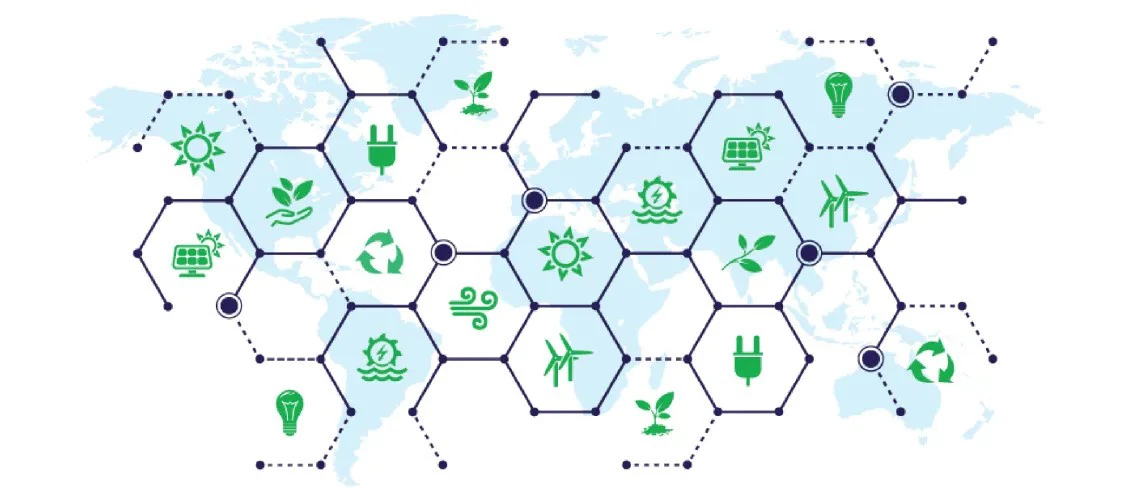 World map with green initiatives spread all over
World map with green initiatives spread all over
In an era defined by climate change and environmental degradation, the role of governments in promoting sustainability has become paramount. Government procurement is no small matter. It represents a substantial portion of the global economy, encompassing a vast array of goods and services, from construction projects to office supplies. The sheer scale of government purchasing gives it the potential to shape markets, encourage responsible business practices, and drive sustainability across industries.
Transforming public procurement practices can play a key role in achieving a greener and more sustainable future in multiples ways by:
- Evaluating the total cost of ownership over the product's life cycle, including energy use, maintenance, and disposal costs rather than prioritizing the lowest price, which can lead to the selection of products and services that are not environmentally-friendly;
- Incorporating environmental and social sustainability criteria into procurement processes, including energy efficiency, carbon footprint, fair labor practices, and local sourcing.
Recent research suggests that public procurement activities are directly or indirectly responsible for 15% of greenhouse gas emissions, which is seven times the amount emitted by the entire aviation industry.
Given its central position in public spending, procurement can be a lever to implement a whole-of-economy approach to climate change, by aligning purchasing decisions with sustainability and climate goals, engaging with suppliers to drive positive change, and promoting innovation and transparency throughout the supply chain.
To strengthen the knowledge needed to incorporate sustainability into procurement processes, the World Bank together with the International Monetary Fund-Middle East Center for Economics and Finance recently delivered a three-day course on Green Public Procurement (GPP) in Kuwait . Representatives from ten countries in MENA, spanning various entities in green public procurement, from regulatory bodies and central buyers, participated in the sessions. Following are some of the key takeaways that emerged from the discussions:
The vision of Green Public Procurement. The practical application of green public procurement by public entities will lead to long-term efficiencies and savings, either directly through reduced operational costs such as energy efficiency upgrades when procuring energy-efficient lighting systems to public buildings, or indirectly through long-term benefits and externalities such as sourcing medical equipment and supplies that are produced using environmentally friendly materials and processes. This application will also lead to broader policy objectives of climate change and sustainability.
Overcoming challenges. It is important to justify higher upfront costs to secure long-term green benefits. Empowered procurement agencies can play a significant role by supporting laws and regulations that require sustainability criteria and that mandate the alignment of strategies with national policies. Engaging the market on innovative green solutions such as, prioritizing the purchase of environmentally friendly products and services, or organizing competitions that offer financial incentives and recognition to innovative companies and startups, is crucial to drive sustainability and address environmental challenges. Maintaining high-quality standards in procurement processes should also be emphasized to minimize fraud and corruption. Sustained and continuous efforts are necessary, through a concerted approach to include compliance with environmental standards and quality dimension at the heart of the decision-making process.
The journey forward. As countries across the globe continue to face pressing environmental challenges, embracing green public procurement not only serves as a catalyst for sustainable growth but also contributes to global efforts to tackle climate change. By embedding environmental considerations into procurement processes, governments can drive innovation, promote responsible consumption, and pave the way for a more sustainable tomorrow. We are excited to see that the journey towards a greener future in MENA has started with many champions who are advancing the implementation of green public procurement in their respective countries.




Join the Conversation